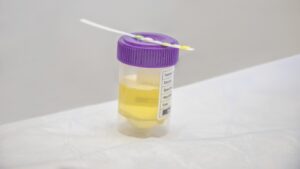Top 3 Sexual Dysfunction Issues That Cause Bedroom Problems for Couples and How to Treat Them
Being in love is easy. Staying in love is a whole other issue. This love month, let’s talk about the uglier side of relationships: unfulfillment in the sex department, particularly for couples who have been in an (extremely) long-term relationship.
Throughout her medical career as an Obstetrician-Gynecologist, Urogynecologist, Aesthetic Gynecologist, and Sexual Medicine Specialist, Dr. Jennifer José has unintentionally saved 42 marriages after she treated the sexual dysfunction issues of women. “I didn’t realize that these problems are playing a big factor in the state of their marriages until they let me know after (the treatment),” shares Dr. José.
Here are the top 3 sexual dysfunction issues according to Dr. Jennifer José that cause bedroom problems for couples and how to treat them.
1. Vaginal Dryness
For women in the perimenopause to menopause stage, it’s natural to experience vaginal dryness (medically vulvovaginal atrophy) due to the decline in estrogen level.
The hormone estrogen is responsible for keeping vaginal tissues moisturized and healthy. With its decline, the vulvar and vaginal tissues become thinner and less elastic; hence, the dryness.
“Vaginal dryness brings stress during intercourse because women do not enjoy having sex due to the lack of lubrication,” says Dr. José.
Aside from losing interest in having sex, women with vaginal dryness may also experience urinary incontinence, recurrent UTI, and a general feeling of pain and discomfort in the vagina that will affect a woman’s overall quality of life.
2. Painful Intercourse
Initial pain during sex is normal, as long as it goes away quickly. What isn’t normal is persistent and recurring genital pain during intercourse (medically dyspareunia) that inhibits you from doing it.
“Women with dyspareunia develop spasms in the vagina which makes it more difficult and not pleasurable to have intercourse,” says Dr. José.
This type of sexual dysfunction could be a sign that you have an infection (e.g. sexually transmitted disease), a gynecologic condition (e.g. vaginismus), or a problem with your sexual response (e.g. loss of libido).
If you are experiencing dyspareunia, consult an ob-gyn like Dr. Jennifer José. Addressing this concern will not only save your sexual relationship but also the overall condition of your health.
3. Lack of Orgasm
Orgasm or sexual climax is subjective. People experience it in different ways and intensities. However, some have difficulty reaching sexual climax, while others do not orgasm at all (medically anorgasmia).
Orgasmic disorders are more common in women than in men. In this case, there is an absence of orgasm even when a woman is sexually aroused or stimulated.
“Women who are experiencing a mix of physiological and psychological issues impede them from having an orgasm,” says Dr. José.
Finding the root cause of anorgasmia is complex because a variety of factors could contribute to it. To get a proper diagnosis and treatment, honesty and openness about your medical history and past sexual experiences with your doctor are imperative.
Now that we have tackled the common sexual dysfunction issues that affect the relationship of couples, let’s talk about how they can be treated holistically and non-surgically.
- Moisturizing Cream – applying topical creams to moisturize the vulva and vagina may help keep vulvar and vaginal tissues healthy and lubricated
- Lubricant – the use of lubricant before sex may ease discomfort caused by sex
- Lasers – laser treatments like CO2 (carbon dioxide), erbium YAG, and radiofrequency will help improve collagen and elastin fibers to help lubricate the vaginal tissues
- PRP Injections – will hasten collagen formation to solve vaginal dryness and are also done for vaginal rejuvenation
- High-intensity Focused Electromagnetic (HIFEM) Chair – an all-around non-surgical treatment for sexual dysfunction that restores neuromuscular control
- Shockwave Treatment – improves the blood supply and nerve supply in the intimate area to help reach orgasm or sexual climax
- Orgasm Shot – a dose of platelet-rich plasma is injected into the clitoris and into the vaginal wall to increase sensation, arousal, lubrication, ability to reach orgasm, and even improve urinary incontinence
- G-Shot – a dose of hyaluronic acid is injected into the G-spot to amplify its size and sensitivity, enhancing stimulation and the ability to reach orgasm
- Topical or Oral Hormonal Therapy – works to replace estrogen in the body for perimenopausal and menopausal women who have a decline in estrogen levels
- Psychosexual Therapy – counseling session to examine the mind and understand the emotional, psychological, and physical factors that contribute to sexual problems
As a reminder, you have to get a proper assessment by a qualified health professional so that you will be given the appropriate treatment to address your sexual dysfunction issues. Not everyone is a candidate for all the treatments mentioned above.
Intimacy is a big part of a healthy relationship, so don’t let a lousy sex life ruin yours! Talk about your problems with your partner and be comfortable in finding the right solutions together.
Pelvic Health & Intimate Wellness Center is equipped with the most advanced techniques and machines in the medical field to treat sexual dysfunction issues non-surgically. Book your appointment here.





